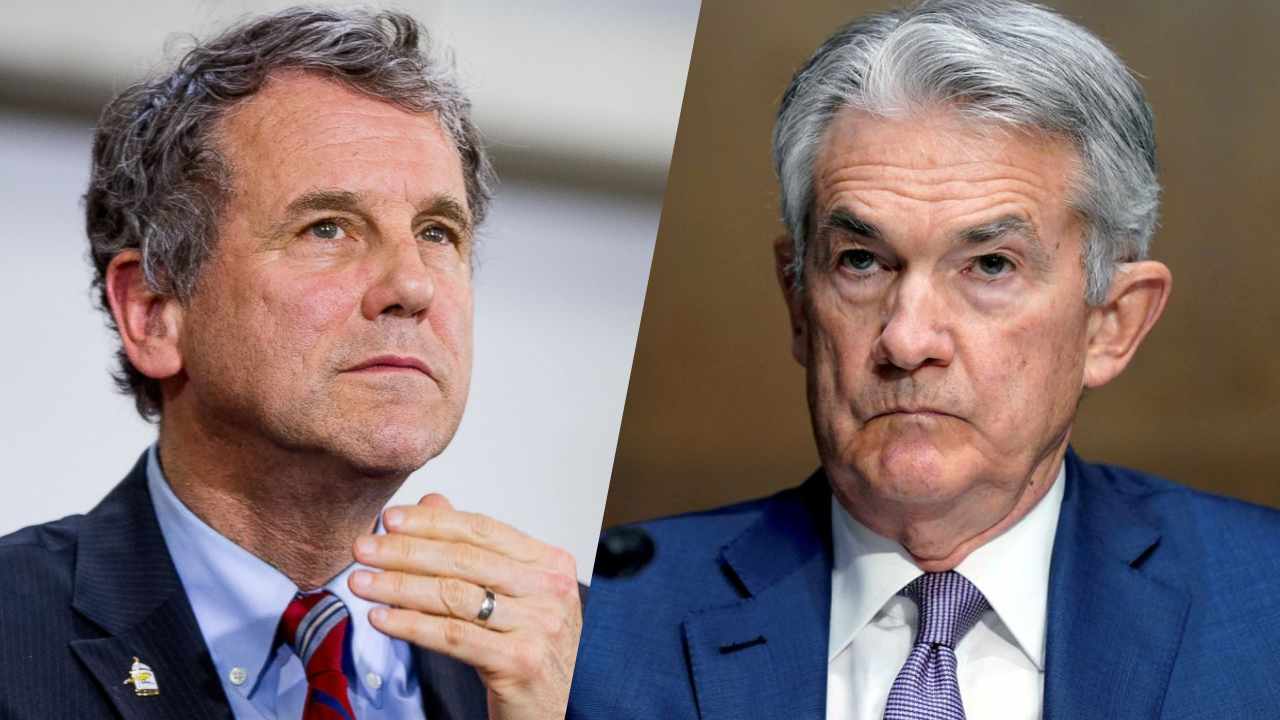
U.S. Senator Sherrod Brown has asked Fed Chair Jerome Powell not to forget the Federal Reserve’s “dual mandate” when making decisions about hiking interest rates at the next Federal Open Market Committee (FOMC) meeting. “It is your job to combat inflation, but at the same time, you must not lose sight of your responsibility to ensure that we have full employment,” the senator told the Fed chairman.
U.S. Senator Reminds Powell of Fed’s Dual Mandate
Jerome Powell, Chairman of the Federal Reserve is under pressure from politicians over his decision to raise interest rates. U.S. Senator Sherrod Brown (D-OH), chair of the Senate Committee on Banking, Housing, and Urban Affairs, sent a letter to Powell on Tuesday asking him to consider the Fed’s dual mandate before making any decision to raise interest rates in the next Federal Open Market Committee (FOMC) meeting.
Senator Brown wrote the following:
The Federal Reserve has the double mandate, as you all know, of encouraging maximum employment and stable prices in the U.S. Economy.
“It is your job to combat inflation, but at the same time, you must not lose sight of your responsibility to ensure that we have full employment,” the lawmaker stressed.
“For working Americans who already feel the crush of inflation, job losses will make it much worse. We can’t risk the livelihoods of millions of Americans who can’t afford it,” Brown continued, elaborating:
I ask that you don’t forget your responsibility to promote maximum employment and that the decisions you make at the next FOMC meeting reflect your commitment to the dual mandate.
Unofficially, the Fed spokeswoman confirmed that Powell got the Brown letter. She also stated that normal Fed policy was to immediately respond to these communications.
Commenting on Brown’s letter to Powell, Mark Zandi, chief economist at Moody’s Analytics, was quoted by CNBC as saying: “Chair Powell has made it pretty clear that the necessary conditions for the Fed to achieve its full employment is low and stable inflation. Without low and stable inflation, there’s no way to achieve full employment.” He added:
He’ll stick to his guns on this. I don’t see this as having any material impact on decision-making at the Fed.
LPL Financial’s chief equity strategist, Quincy Krosby, opined: “The democratization of the Fed is the issue for the market, how much power the other members have vs. the chairman. It’s difficult to know.” Regarding Brown’s letter, the strategist said, “I don’t think it’s going to affect him,” noting:
He is well aware of the stress. He is aware that politicians worry about their future. There’s very little he could do at this point, by the way, to help either party.
Bleakley Advisory Group’s chief investment officer, Peter Boockvar, commented: “I don’t necessarily think that Powell will buckle to the political pressure, but I’m wondering whether some of his colleagues start to, some of the doves who have become hawkish … Employment’s fine now, but as months go on and growth continues to slow and layoffs begin to increase at a more notable pace, I have to believe that the level of pressure is going to grow.”
Is the Federal Reserve influenced in any way by political pressure regarding rate rises? Leave your comments below.
Image creditShutterstock. Pixabay. Wiki Commons
DisclaimerThis information is provided for educational purposes only. It does not constitute an offer, solicitation, or recommendation of buying or selling any goods, services or companies. Bitcoin.com doesn’t offer investment, tax or legal advice. The author and the company are not responsible for any loss or damage caused by the content or use of any goods, services, or information mentioned in the article.